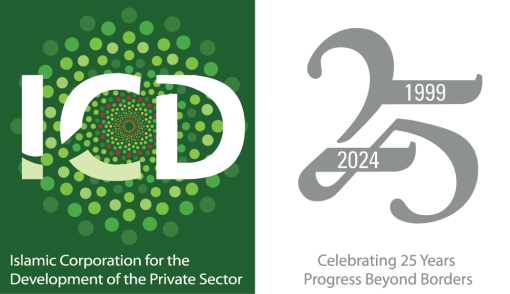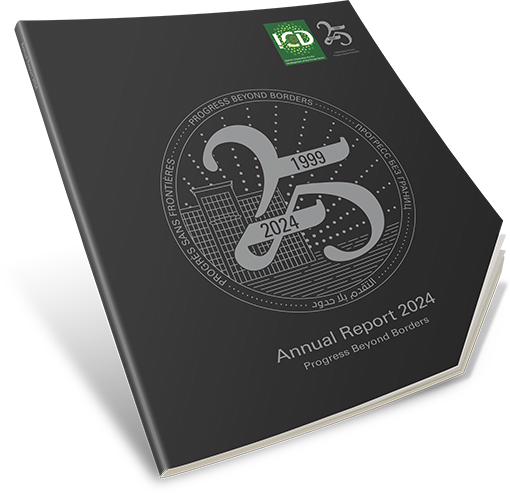Catalyzing Change: Food Security, Economic Resilience, and Innovation
ICD’s equity investments go beyond financial inclusion, addressing critical challenges across member countries to support food security, economic development, and alignment with national mandates. By investing strategically in transformative industries such as agribusiness, Islamic financial institutions, and leasing companies, ICD has empowered businesses to drive growth and stability across diverse economies. Through these efforts, ICD has demonstrated how targeted investments in key industries can act as catalysts for systemic change, driving long-term economic resilience and creating robust value chains.
By investing strategically in transformative industries such as agribusiness, Islamic financial institutions, and leasing companies, ICD has empowered businesses to drive growth and stability across diverse economies.
Fostering Food Security and Economic Resilience
Food security remains a priority for many member countries, and ICD has responded through equity investments that bolster local economies and address critical supply gaps. Al Sharkeya Sugar in Egypt exemplifies this commitment by supporting local agricultural supply chains, reducing dependence on imports, and fostering rural development through its state-of-the-art sugar production facilities. By contrast, Byblos Bank Africa has played a crucial role in ensuring food availability by facilitating trade finance operations for the importation of essential commodities, such as wheat, during challenging conditions. Such initiatives have not only strengthened community resilience but also safeguarded market stability, ensuring essential goods remain accessible during crises. Through strategic initiatives in agribusiness and food supply, ICD not only addresses immediate needs but also builds the foundation for long-term sustainability, reducing vulnerabilities to global supply shocks and fostering self-reliance.
Advancing Economic Development Across Sectors
ICD’s equity investments have consistently driven economic development, empowering key industries and fostering innovation. Investments such as Al Akhdar Bank in Morocco—a pioneering Islamic financial institution established in partnership with Crédit Agricole du Maroc—illustrate ICD’s role in promoting accessible financial services and advancing Islamic banking within the country. The success of Al Akhdar Bank has demonstrated the ability to scale inclusive financial services while aligning with Morocco’s broader economic vision. Similarly, ICD’s investment in Tamweel Africa Holding has strengthened financial ecosystems across West Africa, showcasing its ability to operate effectively across regional boundaries and adapt to diverse economic contexts.
In Saudi Arabia, ICD has tackled housing affordability by supporting institutions such as Bidaya Home Finance, enabling thousands of families to access home ownership. In Kazakhstan, KIC Leasing has catalyzed industrial growth, enabling businesses to access capital for equipment and infrastructure, thereby boosting national development. These investments highlight how ICD’s equity strategy is not only sector-specific but also designed to address critical socio-economic challenges in member countries.

Leveraging Transformational Investments
ICD’s commitment to transformational change is evident in its equity investments that redefine financial landscapes. IB Zaman Bank JSC in Kazakhstan transitioned from a conventional bank to a fully-fledged Islamic financial institution, setting a precedent for future conversions in the region. Similarly, Wifak International Bank in Tunisia underwent a transformation from a leasing company to a fully operational Islamic bank, fostering greater financial inclusion. These investments empower local economies while inspiring financial innovation and driving sustainable progress. By building strong governance structures and enhancing operational capabilities, these investments set the stage for sustainable growth.
Creating Multiplier Effects Through Financial Institutions
ICD’s equity strategy in financial institutions generates substantial multiplier effects, mobilizing additional capital to support broader economic activity. For example, investments in Taiba Finance —the only Islamic financial institution in Uzbekistan—have enabled SMEs to access critical financing, fostering entrepreneurship and job creation in emerging markets. Similarly, Maldives Islamic Bank, the first and only Islamic bank in the Maldives, achieved a successful IPO in 2019, demonstrating the ability of ICD-supported institutions to attract private investment and expand their impact.
These financial institutions act as instruments for development, amplifying ICD’s initial equity investments to reach thousands of businesses and individuals. The ripple effects include increased savings, expanded financial literacy, and enhanced market liquidity, all of which contribute to broader economic growth and resilience. Moreover, ICD’s investments foster innovation and diversification in local financial systems, paving the way for sustainable growth while mitigating risks associated with market volatility and limited financial access in underserved regions. By catalyzing additional funding and strengthening financial ecosystems, these investments have a transformative impact that aligns with ICD’s developmental objectives.


